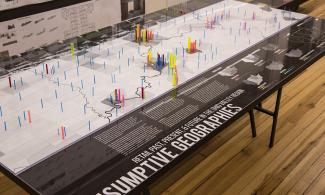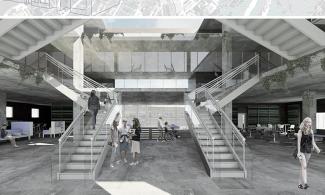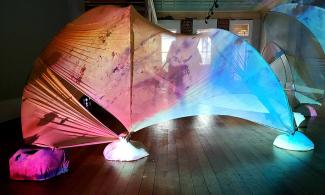The Master of Arts in Interiors is a two-year graduate program designed to provide an advanced interior design degree for individuals with backgrounds in disciplines such as interior design, architecture, and product design. Our graduate students bring diverse experiences to the program, whether they’re practitioners wanting to deepen their expertise beyond their undergraduate design degree, integrate research into their practice, or prepare for roles in academia.
Based within a Research 1, land-grant university, the Interiors graduate program has access to state-of-the-art design fabrication facilities, world-class lectures, and many cross-disciplinary opportunities within the College of Design and the University of Kentucky. The UK School of Interiors expands the notion of interior design to address larger issues of territories and practices and encourages experimental approaches of inquiry through fabrication, visualization, and investigation. The program prepares students to exit as both practicing professionals and academics through engagement in open, dynamic dialogue adjacent to experiential approaches. We prioritize a curriculum that provides a means by which students can harness the power of their education towards positive change.







